Hundreds of people in more than 25 cities across Europe were talking with citizens on the streets, train stations, and squares. Meanwhile, thousands of Europeans were doing more or less the same on the virtual streets of social media under the hashtag #DontTouchMySchengen, that gained a social outreach of more than 1.5 million users.
The message was the same for both campaigns: “don’t touch Schengen!”, or better, “do not allow the limitation of the freedom of movement in Europe”. This support for Schengen was easily found: that agreement is one of the greatest success of the history of the European integration, one of the few provisions which has truly contributed to the building of a common European identity by facilitating European-wide travelling for any kind of reason, such as study, work, exchange, and tourism.
This was also underlined in an open letter to the President of the European Council, Donald Tusk, promoted by JEF-Europe and co-signed by 18 pan-European organizations.
Why does JEF think that it is important to show support for the Schengen Agreement now? The facts are sadly showing that the Agreement is at risk: it was suspended for a total of 21 times in 2015 and in 2016, so far (5 times by Germany and Austria, twice by Slovenia, Sweden, France, Norway, once by Malta, Hungary and Denmark) .
The reasons for these suspensions are mainly three:
– big international events (G7 in Germany, COP21 in France, the “Valletta conference on migration” in Malta);
– clear terrorist threat (France after 13/11/2015 attacks);
– “unexpected flow of migrants” (the remaining 17 cases).
All this is possible because Member States have the capability of reintroduce border controls in case of a serious threat to public policy or internal security.
This measure can only be temporary and should only be considered as last resort. The competence on that decision solely belongs to the Member States: the Commission may raise an opinion but cannot veto.
We think there are many reasons to argue that suspending Schengen for 17 times in a year due to “unexpected flow of migrants” is an abuse. First of all, because the flow was everything but “unexpected”. Since years, Italy, Malta and Greece undergo this situation, and it was not a secret that civil war in Syria and the unstable political situation in Libya would have triggered heavier fluxes. Second, because reintroducing border controls is an insufficient and temporary measure, which fails to fulfil the real problems at hand.We need to fix problems that are due to structural deficiencies belonging to another area, i.e. control and patrol of external borders, the immigration and asylum policies the EU lacks.
Yes, those migrants are entering the EU from outside, and therefore cross its external borders. It is thus not Schengen’s fault, if the fluxes are perceived as “unexpected” or “uncontrollable”; the lack of common measures and policies for patrolling and protecting the external borders and the lack of single policies about migration and asylum are at fault here.
Let’s imagine how it would be, if every migrant that crosses EU’s external borders were received by a European border force. His/her asylum/migration request would be processed as soon as possible by the European migration agency, which would decide upon the request according to the single European policies on migration and asylum.
Why “European”? As last year has shown, the refugee crisis is a European problem, not solely one of specific countries. Furthermore, because the Member States that are situated on the EU’s external borders do not have the resources to provide for such a structure, whereas the whole of the EU could.
So, there are good reasons why we’ve all said #DontTouchMySchengen, but as a next step we should also say #TouchMyTreaties: the current situation is unacceptable, and these are JEF-Europe’s proposals:
- Give the European Commission the appropriate tools to strictly control the suspensions of the Schengen Agreement made by Member States. The current definition of “national security” is unclear and can be easily misinterpreted or abused.
- Implement a European border force for external borders. Under the control of the European Parliament, this force would fight against organised crime, human trafficking and all other illegal offences crossing the national borders of EU Member States.
- Implement single migration and asylum policies in the framework of a single foreign affairs policy that respects international humanitarian law and human rights.
- Create a single European migration agency to implement EU migration and asylum policies
- There should be no more internal borders in the EU; free travel should be a right of every EU citizen. The implementation of the above common policies will allow all EU Member States to join and respect the Schengen Agreement.
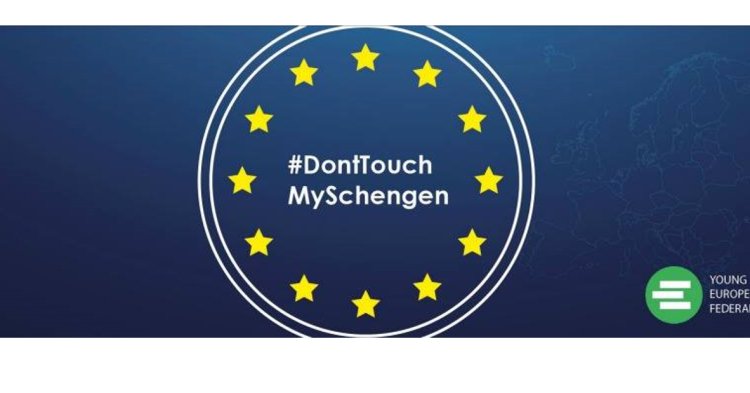


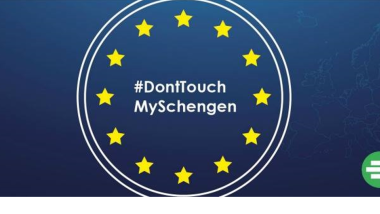
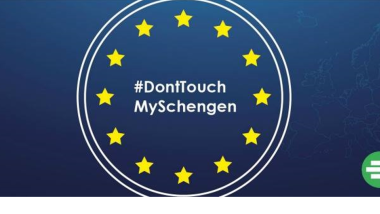
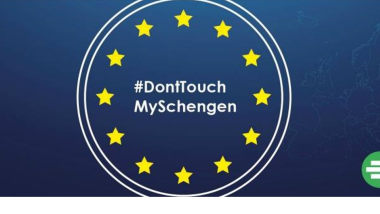
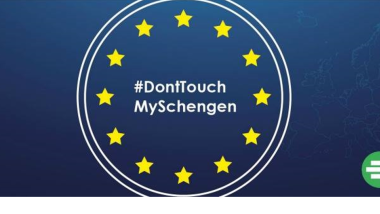
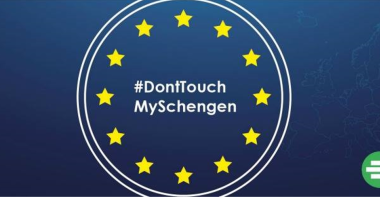
Follow the comments: |
|
